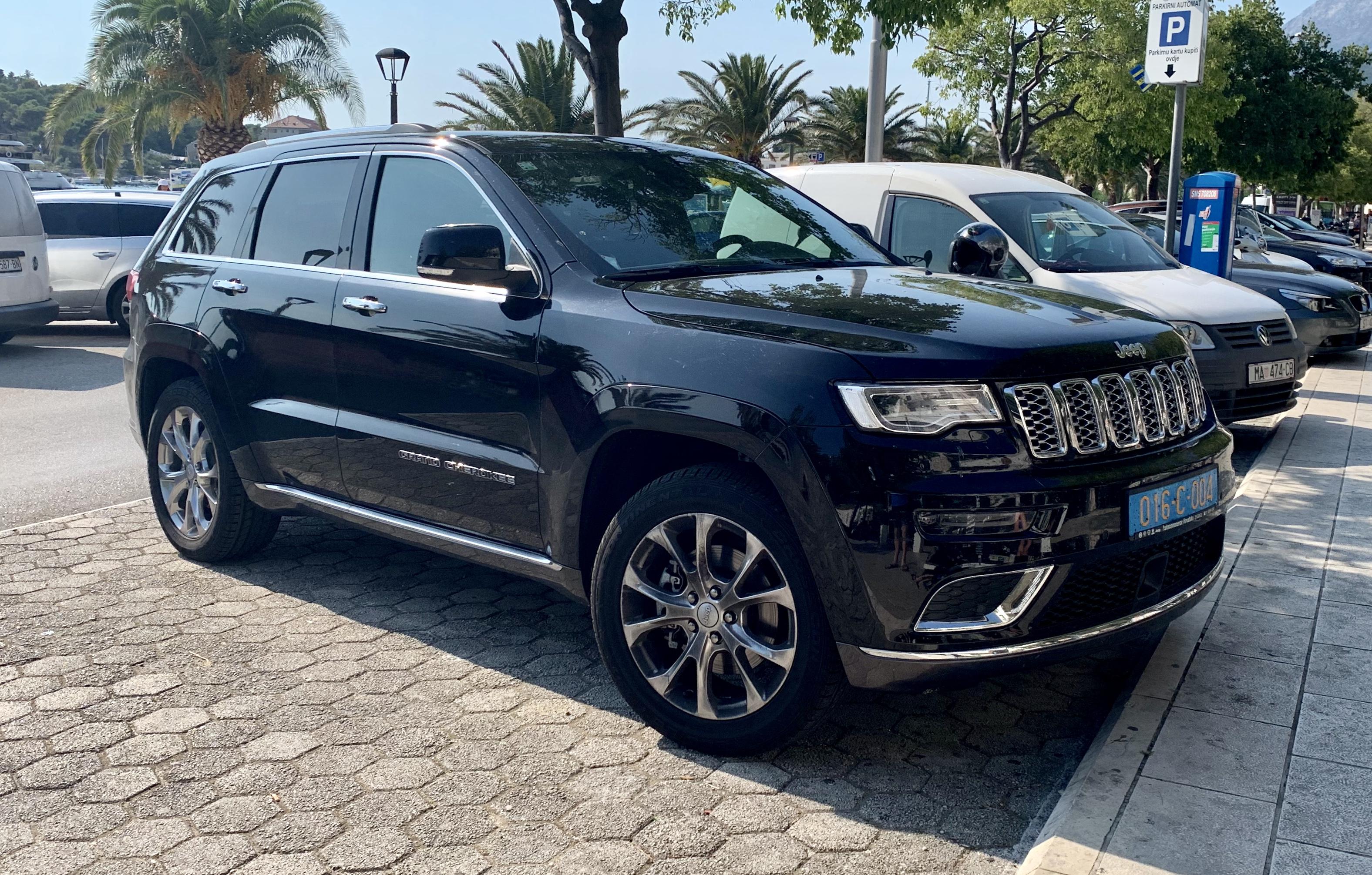What Are The Warning Lights On A Jeep Grand Cherokee?
The Jeep Grand Cherokee is known for its rugged charm and unbeatable off-road capabilities. However, even the toughest vehicles can encounter issues from time to time. One common source of concern for Jeep owners are the warning lights that may illuminate on the dashboard. In this article, we will explore the various warning lights that may appear on a Jeep Grand Cherokee and what they could potentially mean for the vehicle. Stay tuned to ensure that you’re well-informed and prepared for any unexpected surprises on the road ahead.
Table of Contents
- Overview of Warning Lights on a Jeep Grand Cherokee
- Common Warning Lights and Their Meanings
- Recommended Actions When Warning Lights Illuminate
- Importance of Regular Maintenance to Prevent Warning Lights
- Additional Tips for Dealing with Warning Lights on a Jeep Grand Cherokee
- Frequently Asked Questions
- Insights and Conclusions

Overview of Warning Lights on a Jeep Grand Cherokee
In the dashboard of a Jeep Grand Cherokee, you may come across various warning lights that indicate different issues with your vehicle. It’s important to be aware of what these lights mean in order to address any potential problems promptly. Here is an overview of some common warning lights you might encounter:
- Check Engine Light: Indicates an issue with the engine or emissions system. It could be something minor like a loose gas cap or something more serious like a faulty sensor.
- Oil Pressure Light: Warns you about low oil pressure, which could lead to engine damage if not addressed immediately.
- Battery Light: Indicates a problem with the charging system or battery. It could be a failing alternator or a loose connection.
If you see any of these warning lights or others on your Jeep Grand Cherokee, it’s essential to consult the owner’s manual for guidance on what to do next. Ignoring these warnings could result in costly repairs down the line. Always prioritize safety and get your vehicle inspected by a professional if you’re unsure about the issue at hand.
| Warning Light | Possible Issue |
|---|---|
| ABS Light | Issues with the anti-lock braking system |
| TPMS Light | Low tire pressure or sensor malfunction |
| Service 4WD System Light | Problems with the four-wheel-drive system |
Common Warning Lights and Their Meanings
When driving your Jeep Grand Cherokee, it’s essential to pay attention to the warning lights on your dashboard. These lights can indicate potential issues with your vehicle that need to be addressed promptly. Here are some common warning lights found in a Jeep Grand Cherokee and their meanings:
1. Check Engine Light: This light typically indicates a problem with the engine or emissions system. It’s important to have this light checked as soon as possible to prevent further damage to your vehicle.
2. Oil Pressure Light: If this light comes on, it could mean that your vehicle has low oil pressure. Driving with low oil pressure can cause severe damage to your engine, so it’s crucial to pull over and check your oil levels immediately.
Recommended Actions When Warning Lights Illuminate
When warning lights illuminate on your Jeep Grand Cherokee, it is important to take immediate action to prevent potential issues. Here are some recommended actions to follow:
Check Engine Light: If the check engine light comes on, it could indicate a variety of issues, from a loose gas cap to a more serious engine problem. The best course of action is to bring your vehicle to a mechanic for a diagnostic scan to pinpoint the source of the problem.
Oil Pressure Light: If the oil pressure light flickers on, it could mean that your engine is not getting enough oil. Stop driving immediately and check your oil levels. If they are low, top up as soon as possible. If the light persists, seek professional help.
Brake System Light: The brake system light signals an issue with your braking system. It is crucial to address this immediately as it could compromise your safety on the road. Inspect your brake fluid levels and brake pads. If everything appears normal, get your brakes checked by a professional mechanic.
By following these on your Jeep Grand Cherokee, you can ensure the longevity and performance of your vehicle. Remember to always prioritize safety and address any issues promptly to prevent further damage.
Importance of Regular Maintenance to Prevent Warning Lights
Regular maintenance is crucial when it comes to preventing warning lights on your Jeep Grand Cherokee. By staying on top of routine maintenance tasks, you can help avoid potential issues that may trigger warning lights to come on. Simple tasks such as checking and changing fluids, inspecting the battery, and ensuring all lights are functioning properly can make a big difference in preventing warning lights from illuminating.
One of the most common warning lights that Jeep Grand Cherokee owners may encounter is the check engine light. This light can indicate a variety of issues, from a loose gas cap to more serious engine problems. By performing regular maintenance, such as changing the oil and air filters, you can help prevent the check engine light from coming on unexpectedly.
In addition to the check engine light, other warning lights you may encounter on your Jeep Grand Cherokee include the tire pressure monitoring system (TPMS) light, ABS light, and battery light. By following the manufacturer’s recommended maintenance schedule and addressing any issues promptly, you can help ensure that these warning lights stay off and your Jeep continues to run smoothly.
Additional Tips for Dealing with Warning Lights on a Jeep Grand Cherokee
When it comes to dealing with warning lights on a Jeep Grand Cherokee, there are a few additional tips that can help you navigate the situation with ease. One important tip is to always refer to your owner’s manual to understand what each warning light signifies. This will help you identify the issue quickly and take the appropriate steps to address it.
Another helpful tip is to pay attention to the color of the warning light. Red lights typically indicate a more serious issue that requires immediate attention, while yellow or orange lights may signal a less urgent problem. Knowing the difference can help you prioritize your next steps and determine whether it’s safe to continue driving or if you need to pull over and seek assistance.
Lastly, if you’re unsure about the meaning of a specific warning light, don’t hesitate to consult with a professional mechanic or your local dealership. They can provide you with expert advice and guidance on how to best address the issue at hand. Remember, it’s always better to be safe than sorry when it comes to warning lights on your Jeep Grand Cherokee.
Frequently Asked Questions
Q: What are some common warning lights that may appear on a Jeep Grand Cherokee dashboard?
A: Some common warning lights on a Jeep Grand Cherokee include the check engine light, low tire pressure warning, oil pressure warning, battery warning, and ABS warning lights.
Q: What does the check engine light indicate on a Jeep Grand Cherokee?
A: The check engine light on a Jeep Grand Cherokee typically indicates a problem with the engine or emissions system that needs to be diagnosed and repaired.
Q: How can I identify what a specific warning light means on my Jeep Grand Cherokee?
A: Consult the owner’s manual for your Jeep Grand Cherokee to determine the meaning of each warning light. You can also bring your vehicle to a certified mechanic for a diagnostic scan.
Q: Should I continue driving if a warning light appears on my Jeep Grand Cherokee?
A: It is not recommended to continue driving if a warning light appears on your Jeep Grand Cherokee, especially if it indicates a serious issue like low oil pressure or a malfunctioning brake system.
Q: How can I prevent warning lights from appearing on my Jeep Grand Cherokee?
A: To prevent warning lights from appearing on your Jeep Grand Cherokee, it is important to regularly maintain your vehicle, schedule routine inspections, and promptly address any issues that arise.
Insights and Conclusions
paying attention to the warning lights on your Jeep Grand Cherokee is crucial in order to ensure the safety and performance of your vehicle. By understanding what each light signifies and taking prompt action when they illuminate, you can prevent potential issues and keep your Jeep running smoothly on the road. Remember, the lights are there to communicate with you, so listen to what they have to say and drive on with confidence. Stay safe out there!
